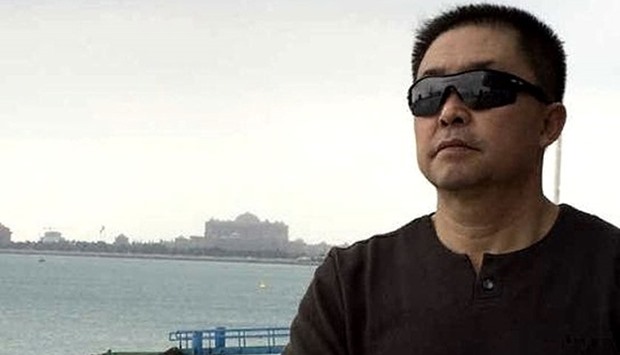Christian activist Gou Hongguo had gone abroad to be trained in "subverting state power", the Second Intermediate People's Court in the northern city of Tianjin said Friday on a verified social media account.
He also sought to turn public opinion against the government and attempted to overthrow the socialist system, among a litany of other offences, it said.
He was given three years in prison, suspended for three years, the official Xinhua news agency said, adding that he had pleaded guilty and said he would not appeal.
The sentence is relatively light by the standards of dissident trials in China, where the courts are controlled by the ruling Communist party.
Gou, who had protested against forced evictions, was one of more than 200 activists and lawyers involved in cases the Communist party considers sensitive who were detained in the so-called "709 crackdown" -- named for its main date in July 2015.
Gou's trial was the fourth at the Tianjin court this week, and followed that of high-profile rights lawyer Zhou Shifeng, whose Fengrui law firm -- known for taking on cases of dissident scholars, victims of sexual abuse and members of banned religious groups -- has been at the centre of the 709 crackdown.
Zhou was on Thursday given seven years in prison for subversion.
Activist Zhai Yanmin was on Tuesday handed a three-year suspended sentence for crimes that included waving banners and shouting slogans, while Hu Shigen, a Christian campaigner who was a member of the same underground church as Gou, was jailed for seven and a half years on Wednesday.
Campaign groups have condemned the trials, and US State Department spokesman Mark Turner said the charges were "vague and apparently politically motivated".
"It's troubling that Chinese authorities denied these defendants access to their chosen counsel and family members as well," he said. "We urge China to release all the lawyers and activists who were detained on July 9th, 2015, and remove restrictions on their freedom of movement and professional activities."
Authorities insist the Tianjin trials are open, with the court stating that about 40 people including politicians, legal scholars, and "civilian representatives from all walks of life", as well as mainland and foreign media outlets, were present at Gou's proceedings.
But family members of those detained, particularly their wives, complain of being constantly surveilled and forcibly being kept away from the court or barred from seeking further information.
Gou's wife Fan Lili went to the courthouse earlier this week, falling to the ground outside the building weeping, saying she had not been informed of her husband's trial date and had not been allowed in.
Watched by scores of police and plainclothes officers, she reportedly pleaded for him to come home and meet his 16-month-old son for the first time.

Gou Hongguo had gone abroad to be trained in ,subverting state power,, the Second Intermediate People's Court in the northern city of Tianjin said
A Chinese human rights activist was on Friday given a three year suspended prison sentence for subversion, state media said -- the fourth such case this week as authorities crack down on dissent.
